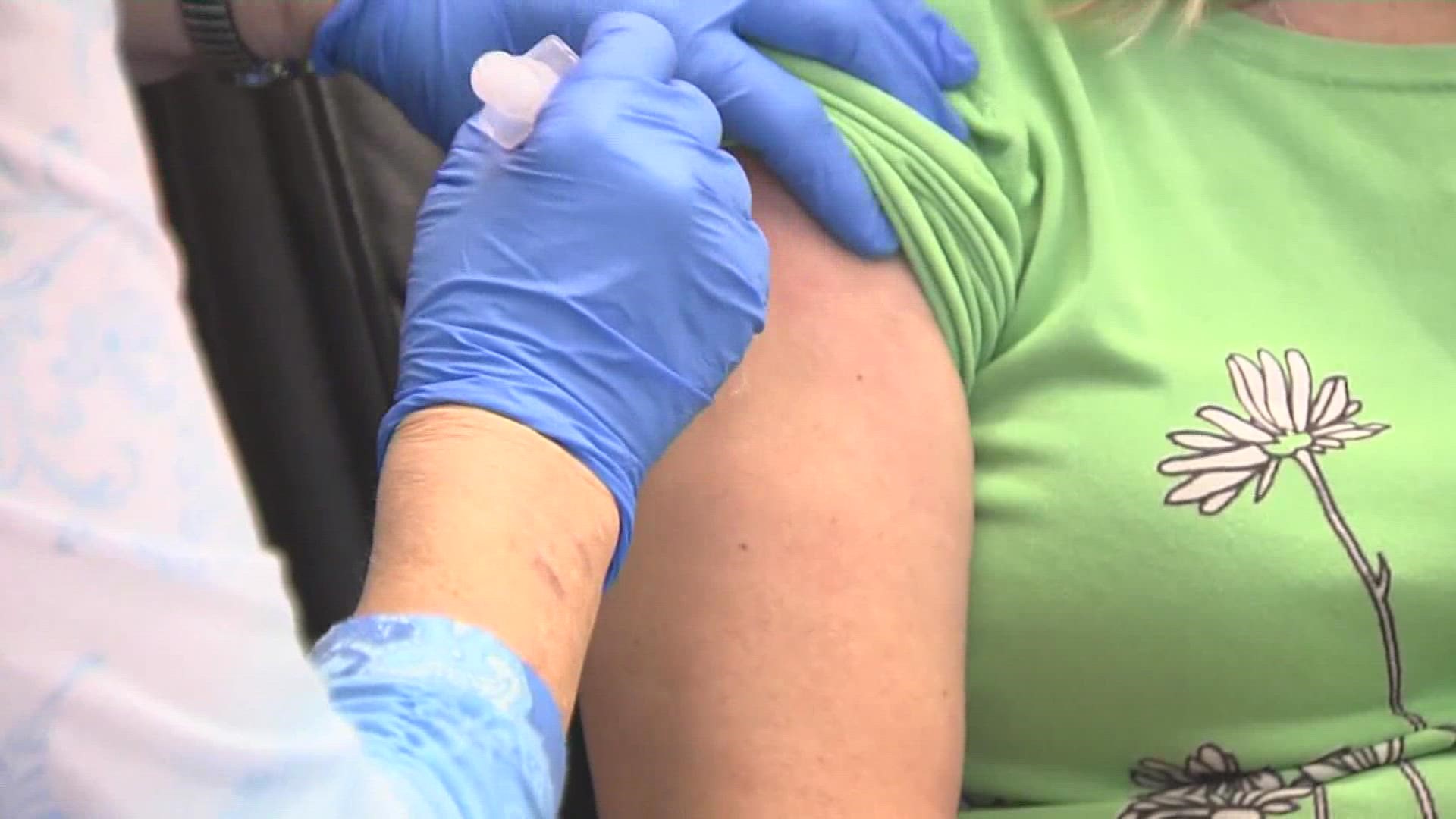COLORADO, USA — With flu season expected to start early this year, infectious disease experts are calling on Coloradans to get vaccinated.
Illness severity could be stronger due to lower flu numbers seen during the COVID-19 pandemic, UCHealth said Tuesday in a news release.
“This year has the potential to be a bad flu year. A lot of the measures used during the COVID-19 pandemic such as masking and limiting gatherings that helped limit the spread of flu are no longer in place," said Dr. Michelle Barron, UCHealth’s senior medical director for infection prevention and control. "We also have less immunity to flu since we haven’t had the same exposures we normally have from year to year.”
Predictions for the upcoming flu season were based on modeling and trends seen in the southern hemisphere, according to the release.
In Australia, flu season typically occurs from May through September. This year’s flu season began about a month earlier, in mid-April, and peaked months ahead of what is typically seen. Since mid-April, the weekly number of confirmed flu cases exceeded a five-year average in the region.
When to get a flu shot
Flu season in the United States typically begins around Thanksgiving and peaks in December or January. This year’s outlook shows flu season could begin in late October or early November.
“It will take about two weeks to get full protection from the vaccine, so I would recommend getting your flu shot as soon as it becomes available so you can ensure you are adequately protected,” Barron said.
Barron compared numbers seen in Australia to those seen during the 2019-2020 flu season, which she said was considered severe. Overall, during the 2019-2020 flu season, Colorado had more than 3,500 hospitalizations, the third-highest end-of-season count in the state in the past five flu seasons.
“An infection with the flu can sometimes lead to hospitalization and death," she said in the release. "A flu shot can decrease that potential. We have seen the impact that COVID-19 hospitalizations had on our health system, and decreasing the need for hospitalization for flu is something we should strive for.”
Since June, clinical teams have activated contingency plans for the fall and winter season that involve stocking up on antivirals and antibiotics and making sure UCHealth hospitals have extra personal protective equipment (PPE).
COVID-19 Omicron boosters
COVID-19 and influenza are both contagious respiratory viruses, and Coloradans are encouraged to receive a flu vaccine and a omicron-specific COVID-19 booster vaccine simultaneously.
“It is safe to get a COVID-19 vaccine and any other vaccine, including the flu shot, at the same time," Barron said. "Your body recognizes each vaccine separately and does not cause you any harm but does give you protection against both simultaneously. Think of it as training your immune system in a similar manner to basic training in the military. You may learn to use a weapon and also learn physical combat. They are related but separate types of training meant for your protection.”
COVID-19 and the flu virus can look similar. They share the same symptoms of fever, chills, body aches, runny nose, headache and fatigue. If people have symptoms, they should get tested to find out which virus they have and what treatment methods are appropriate.
According to the release, COVID-19 booster vaccines will be available soon.
In addition to getting vaccinated against the flu and COVID-19, Barron encouraged all Coloradans to catch up on other immunizations, including polio, shingles and pneumonia.
SUGGESTED VIDEOS: COVID-19 Coronavirus

